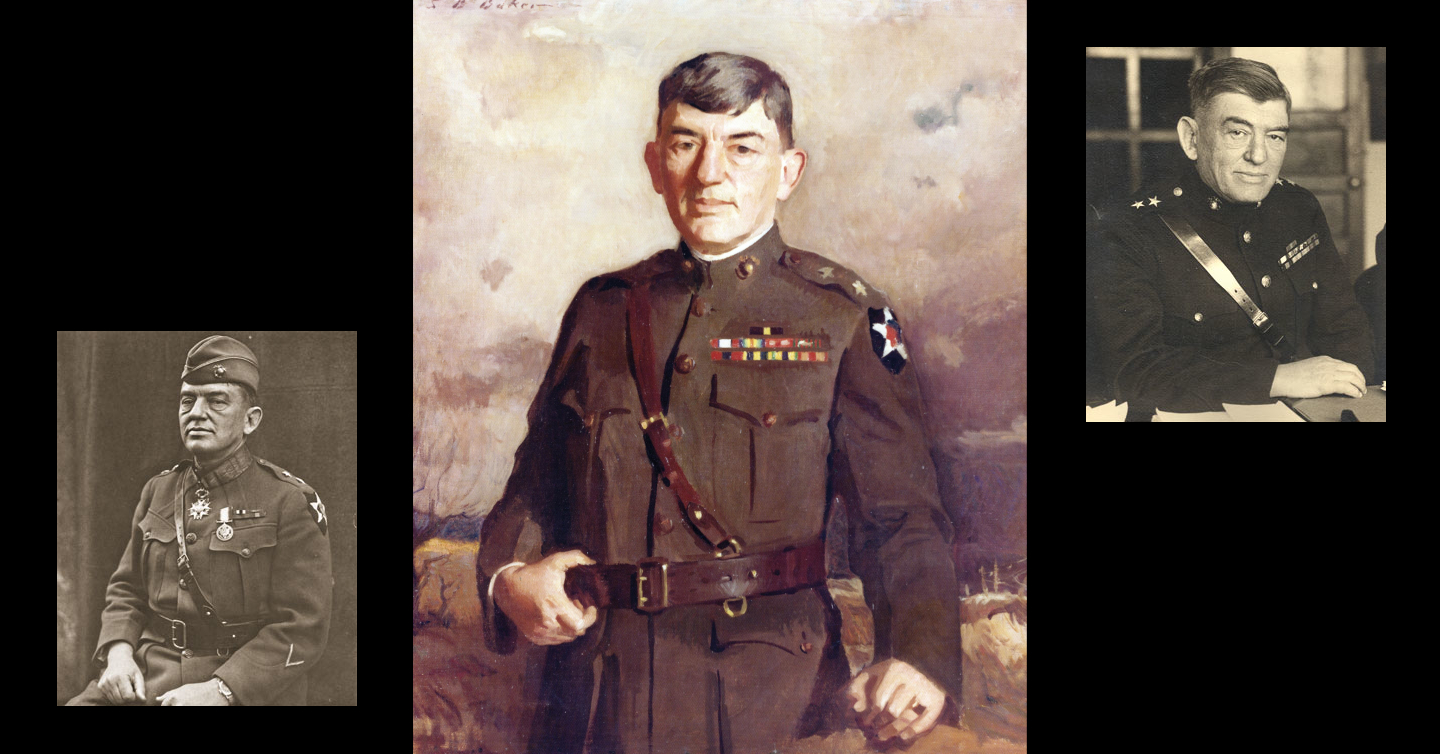This year, owing to our rapid advance towards Germany, the proclamation has not yet reached us, and we are deprived of the privilege of hearing it read. Our Chaplain, therefore, has asked me to act as a substitute and to say a few words to you about this Thanksgiving Day.
In keeping with WAR ROOM tradition, we are pleased to bring you the Thanksgiving message of a historical senior leader to prompt thinking about the circumstances of our own time. This year we return to the year 1918 and the words of United States Marine Corps Lieutenant General (then Major General) John A. Lejeune. Later the 13th Commandant of the Marines Corps, Lejeune was, at the time, in command of the U.S. Army’s Second Division. The Armistice had been declared just weeks earlier. Kaiser Wilhelm II of Germany and Emperor Karl of Austria had both abdicated and German Colonel Paul von Lettow-Vorbeck had just surrendered his force of 175 European and 3,000 African soldiers days before. The Division had entered Germany following the Armistice, where it assumed occupation duties that would last until April 1919. As you read Major General Lejeune’s words below, as recounted in the book The Reminiscences of a Marine, please keep in mind all of those serving around the world, in and out of uniform, apart from their families and loved ones. Take time in a world full of divisiveness and conflict to remember the good and all that there is for which to be thankful.
We offer this as our Thanksgiving message to you, our readers and listeners, for a happy and safe and hopeful holiday season.
“November 28th. This is Thanksgiving, and a bleak, rainy, disagreeable day it has been. This morning however it stopped raining for a while and we were able to hold open air services in the square. We had a band which played patriotic airs, and men sang some hymns and Chaplain Pierce read a psalm. I made a short talk to the men and then there was a prayer by the Chaplain, ‘America’ was sung, and the meeting was over.
I’m enclosing a copy of my little address which I wrote down later from memory. Similar services were held in every town where Second Division troops were billeted.
My address follows:
This is the day set apart by our forefathers as Thanksgiving Day. Each year the president issues a Thanksgiving proclamation, setting forth the reasons we have had during the preceding twelve months for being thankful, and calling on all our people to assemble in their places of worship and give thanks to God for the blessings which they have received. The President’s proclamation is always read at these services.
This year, owing to our rapid advance towards Germany, the proclamation has not yet reached us, and we are deprived of the privilege of hearing it read. Our Chaplain, therefore, has asked me to act as a substitute and to say a few words to you about this Thanksgiving Day.
I feel that is needless for me to tell you why our Division, our Army, and our people at home should be thankful today. All of you know the story of the mighty miracle that has been wrought. All of you know the story of how our country has as if by magic, being organized for war; of how our army has been trained, supplied and transported overseas without loss; and when at the end of the month of May, Germany was at the height of its power and its path to conquest seemed clear, all of you know the story of how this splendid division of fighting men, with their hearts inspired with patriotism, filled with burning zeal, and steeled with divine courage, was deployed in his front, checked his advance, and then defeated the enemy. All of you know the story of how, since those days, he has met defeat after defeat, and how only a few days ago, he was finally forced to humbly to beg for peace.
Truly it was the handiwork of God.
It is, therefore, very fitting that we should gather today and give thanks to the Lord God of hosts for having given our nation in our cause this speedy and this decisive victory, and for having selected us to be among the instruments chosen by Him to carry out His will.
On December 1st the first line divisions of the Third Army invaded Germany simultaneously, the leading elements of the advance guard crossing the frontier at 7:30 AM. It was an event of great historic importance and one to be always remembered by those participating in it. It was a quiet and peaceful invasion, however. There were no visible signs of hostility. The inhabitants showed no symptoms of unfriendliness, but looked at us curiously as if anxious to discern what manner of men American soldiers were.”
Photo Credit: All images courtesy of the U.S. Department of Defense

